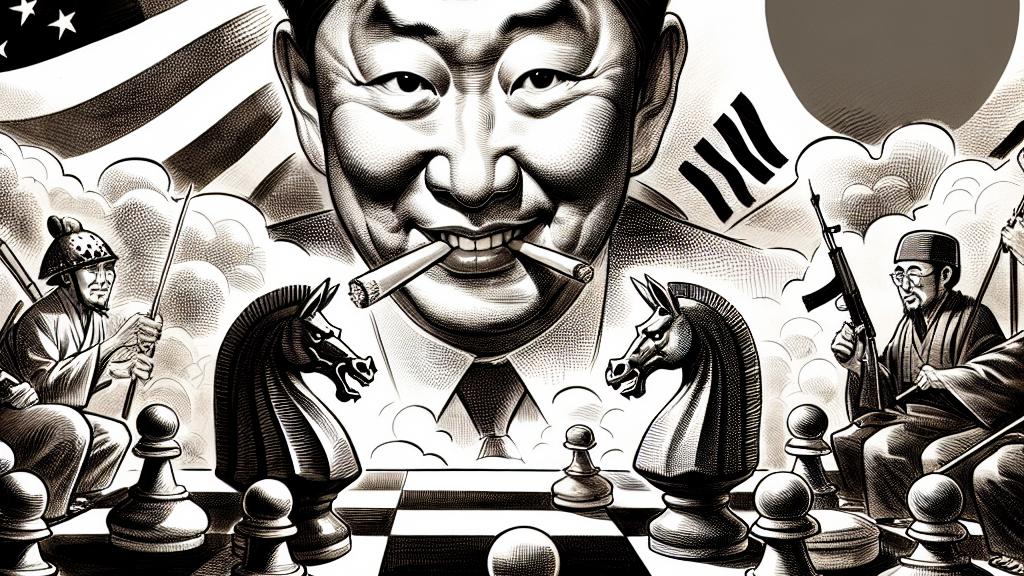China Fires Back: 'False Accusations' from US and Japan Exposed!
Overview
- China categorically denies maritime accusations from the US and Japan.
- Tensions highlight shifting military dynamics in East Asia.
- Exploration of economic impacts and future diplomatic dialogues.

Context of Diplomatic Tensions
In a fierce diplomatic stance, China has rebuffed accusations from the United States and Japan concerning what they describe as its aggressive military posturing in the South and East China Seas. China's foreign ministry labeled these claims as 'false accusations,' emphasizing that its military enhancements are within the bounds of legitimate national defense. This escalated tension comes amid persistent military drills and strategic collaborations between the US and Japan aimed at countering perceived threats from China. The situation has ignited debates over regional security policies and the responsibilities of these nations to maintain peace and stability in an increasingly volatile backdrop.
Japan's Transformative Military Strategy
Japan is undergoing a significant transformation in its defense policy, a major shift from its post-World War II pacifist stance. Prime Minister Fumio Kishida's government has introduced a series of policies designed to bolster national defense capabilities as a response to the heightened threat from China and North Korea. The National Security Strategy prioritizes increased military spending, allowing Japan to engage more actively in collective security arrangements with the United States. This strategic shift is not only a move to strengthen Japan's military but a crucial step in redefining its role in the Indo-Pacific region to better align with changing global power dynamics and emerging threats in its immediate environment.
Wider Economic and Diplomatic Implications
The ongoing tensions between China, the US, and Japan present substantial implications for global economic stability. The interdependence among the world's largest economies means that escalating disputes risk fracturing established trade relations, adversely affecting global markets. Recent shifts in trade flows indicate a growing reluctance on the part of US businesses to invest in China due to geopolitical tensions, compelling many to seek alternative markets. Furthermore, discussions at upcoming international forums will be pivotal in determining whether these nations can navigate their differences and establish cooperative frameworks that promote economic resilience while addressing security concerns. The outcome of these dialogues holds significant consequences not just for the involved countries but for the global economy as a whole.

Loading...